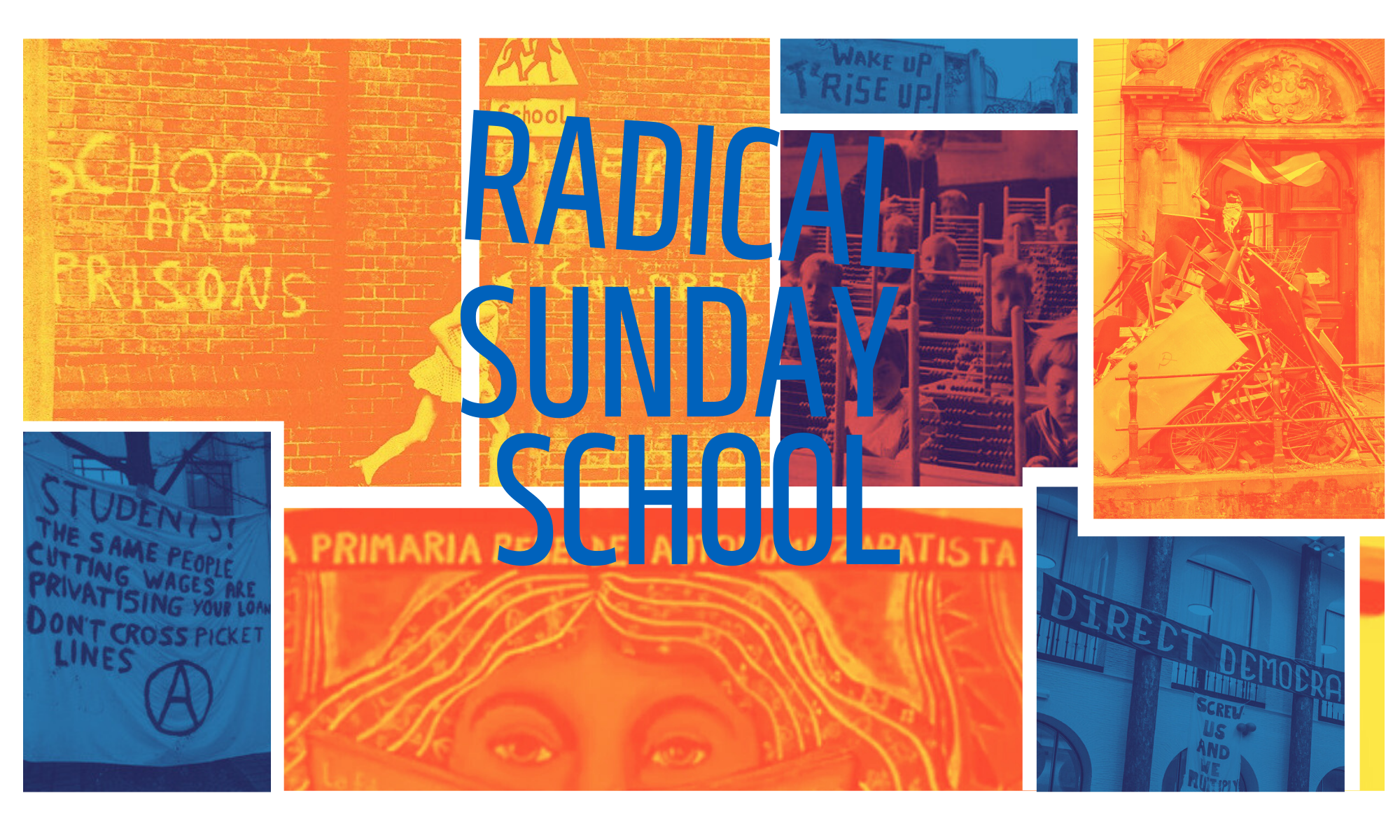In the 28 May session of Radical Sunday School, we began to speak about the future of our collective. So far, we’ve been spending our sessions reflecting on, exploring, and learning about the ways that formal education and academia reproduce and contribute to a huge number of problems in society. Moving forward, we hope to start engaging in actual concrete actions to fight these problems. While reading groups can be fun, the aim of Radical Sunday School was never to just talk about a better world. We have always wanted to create that better world, by learning defiantly, coming together as a community, and radically changing how we all think about what a school can be!
As a group, we opened the floor to discussing next steps for RSS, and pretty quickly, the conversation turned to the political use of space. One participant mentioned his experience in a Latin American university, where police forces were legally barred from coming onto campus, because this was seen as an inappropriate intrusion of the current political system into what should be a free place to question the status quo. Another participant also brought up the example of UNAM (Universidad Nacional Autónoma de México, or the National Autonomous University of Mexico), which is set up to operate as its own autonomous city, independent of state control.
Both of these Latin American examples can be seen in contrast with most U.S. and (Western) European universities. These universities are typically placed on the outskirts of cities, and set up as expensive, visually impressive, apolitical spaces. This kind of privileged cloistering reinforces many of the values we’ve talked about in previous sessions: Universities come across as elite ivory towers, beautiful buidlings where intelligent “professionals” — who’ve earned their place in this Shangri-La with intense intellectual combat — discuss their specialized fields, far from the messiness of everyday life and ordinary people in the city outside. At the same time, universities are heavily capitalized and policed spaces, where private security forces keep students in line, and various companies compete for monopoly rights on the food students eat, the books they read, and the buildings they live in.
One area where the distance between life inside and outside the university is particularly noticeable is the realm of activism and radical politics. On the one hand, we’ve all known radical student activists who give up the fight when they graduate and get “real jobs”. On the other, as one participant pointed out, activism is often organized amongst university students, meaning that anyone who isn’t studying or working at a university will have a hard time getting involved. All of this lead the group to wonder: How could RSS create a place for radical learning that isn’t directly reliant on the university, but instead dissolves the boundaries between the campus and the world outside?
Because we are in Amsterdam, after all, occupation and squatting quickly came up in discussion. One source of inspiration was the Amsterdam Autonomous Coalition. The AAC, an activist group working mostly on the campuses of UvA and VU, occupied two buildings this year, intending to establish autonomous zones where students could freely associate and learn together, beyond the reach of police and profits. Some real enthusiasm for finding a building in the city came up, with the hope that we could use such an autonomous place as a kind of learning hub, hosting various educational programs, as well as directing visitors to other radical organizations in the city.
A number of different proposals were made as to what kinds of programs RSS could run (with varying degrees of enthusiasm coming from the crowd), including:
• Skillshares, where people could learn and teach skills like bike repair, tailoring, plumbing, first aid, conflict resolution, legal work, etc.
• “News of the World”, where people could learn about radical activism being done in other places, as well as elsewhere in the city
• Weekly research sessions, where people could pick a topic as a group, then do their own research separately, before coming back together to discuss findings.
• A “Want-Ad” board, where people could post skills and knowledge areas they want to develop, and others could sign up to help teach them
• “Standing Uni”, a kind of action in which participants occupy university lobbies to teach classes openly to anyone passing by, showing that we don’t need fancy classrooms or enrollment to share knowledge
Moving forward, we came up with a number of suggestions for how to implement some of these new directions for RSS. One idea was to contact a number of organizations in the city who do education outside of the university system, to see if we could add them into our network. A number of groups in Bijlmer and the Javastraat were suggested, as well as collectives like Unbubble Academia and ‘t Wereldhuis.
